featured
Florida Case On Medical Marijuana Patients’ Gun Rights Is On Hold As Supreme Court Weighs Underlying Issue
Published
7 hours agoon
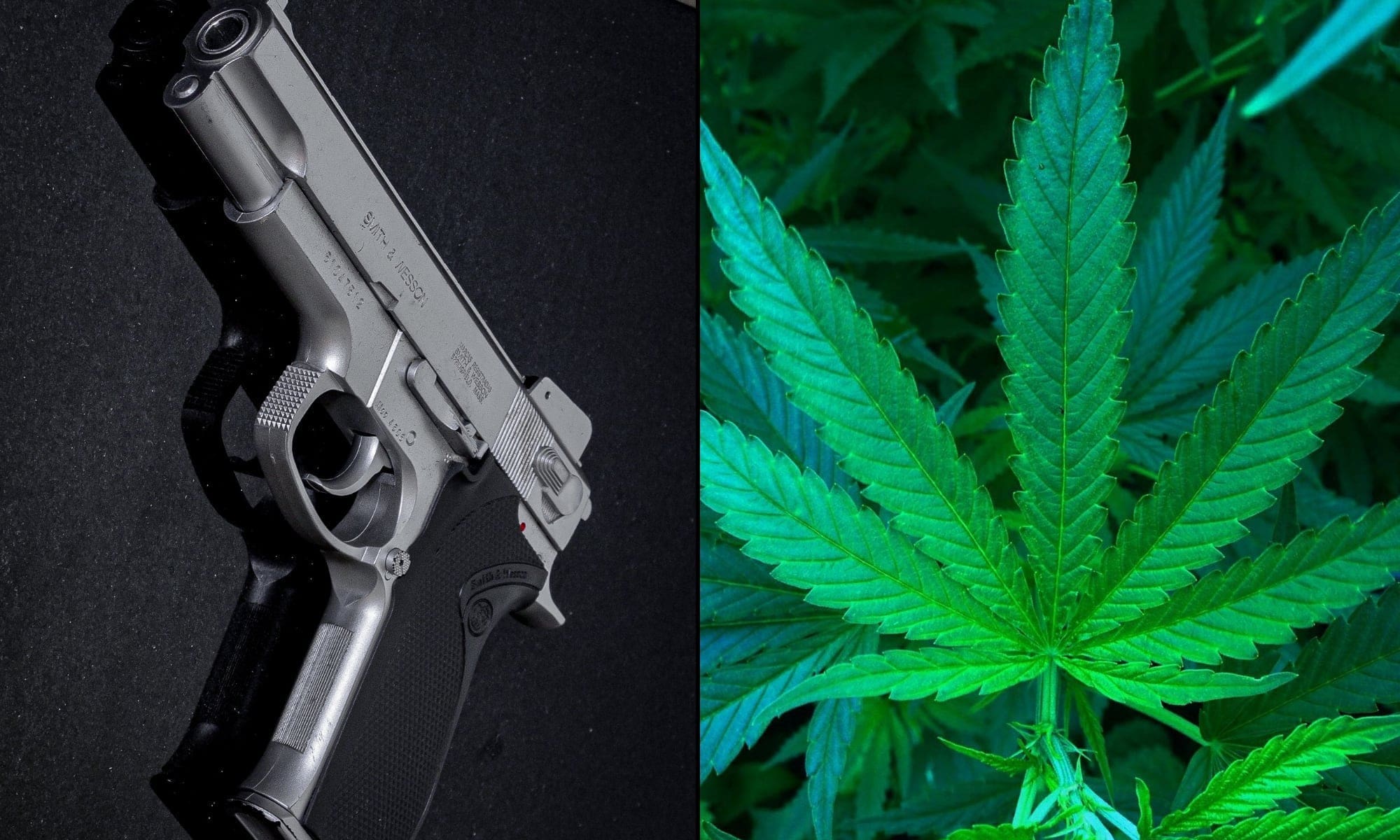
A federal court has agreed to delay proceedings in a years-long Florida-based case challenging the constitutionality of the ban on gun ownership by people who use medical marijuana, with the Justice Department arguing that the U.S. Supreme Court’s recent decision to take up a related dispute warrants a stay in the lower court.
The Supreme Court accepted a petition for cert for the separate case, U.S. v. Hemani, last week to settle the question of whether the ban—known as Section 922(g)(3)—is consistent with the Second Amendment.
With that potentially precedent-setting judgement now pending, DOJ submitted a motion—which was unopposed by the plaintiffs—requesting that the U.S. District Court for the Northern District of Florida hold the matter at least until “the Supreme Court’s resolution” in Hemani.
The Trump administration further said a pause in the proceedings is necessary due to the government shutdown, which has deprived DOJ of resources and prohibits the agency’s attorneys “from working except in certain limited circumstances.”
“Granting a stay would promote judicial economy and the efficient use of resources of the Court and the parties,” it said. “The resolution of Hemani will almost certainly have a significant impact on this case. The Supreme Court’s ruling on the constitutionality of § 922(g)(3) will likely shed significant light on the viability of Plaintiffs’ claims here and what factual development, if any, is necessary to determine whether the application of § 922(g)(3) is constitutional as applied to Plaintiffs.”
Chief U.S. District Judge Allen Winsor agreed in a brief order issued on Thursday.
“Defendants’ unopposed motion to stay pending resolution of United States v. Hemani (ECF No. 41) is GRANTED. This case is STAYED, and all deadlines are suspended,” he wrote. “Any party may move to lift the stay at any time.”
The plaintiffs in the Florida case are Vera Cooper and Nicole Hansell, who are registered medical cannabis patients denied gun purchases over their admission to participating in the program, and Neill Franklin, a former police officer who wants to access medical marijuana without jeopardizing his right to own a firearm.
In August, a three-judge panel of the U.S. Court of Appeals for the Eleventh District, in a opinion authored by Judge Elizabeth Branch, departed from the district court’s earlier ruling that upheld Section 922(g)(3). It was a win for the plaintiffs, though the case was remanded back to the lower court and remains unsettled.
Former Florida Agriculture Commissioner Nikki Fried (D) initially led the suit against the federal government, but she was removed from the case after leaving her state office. The Republican commissioner who replaced her declined to become involved in the legal proceedings. Fried is now chair of the Florida Democratic Party.
While the Supreme Court last Monday also declined to take up a separate case on cannabis consumers’ gun rights, there are still several others pending a decision from the justices. But the choice to take up Hemani in particular is likely welcome news to the Justice Department, which has consistently defended the firearm prohibition and specifically requested that SCOTUS review that case instead of alternatives.
That could be related to the fact that the defendant is not only a marijuana consumer but also a user of cocaine who’s sold drugs in the past, so it’s possible DOJ reasoned that he is a less sympathetic face for the issue. Defendants in the other cases were merely found in possession of both a firearm and marijuana.
In June, U.S. Solicitor General D. John Sauer, an appointee of President Donald Trump, submitted a filing with the Supreme Court that said “Section 922(g)(3) complies with the Second Amendment,” and the statute “targets a category of persons who pose a clear danger of misusing firearms: habitual users of unlawful drugs.”
The law “bars their possession of firearms only temporarily and leaves it within their power to lift the restriction at any time; anyone who stops habitually using illegal drugs can resume possessing firearms,” Sauer said.
Notably, while the government mentions “habitual” users of illegal drugs 40 times in its filing, that word does not itself appear in 922(g)(3). The language of the statute prohibits anyone “who is an unlawful user of or addicted to any controlled substance” from purchasing or possessing firearms or ammunition.
In a separate August filing for the case, the Justice Department also emphasized that “the question presented is the subject of a multi-sided and growing circuit conflict.” In seeking the court’s grant of cert, the solicitor general also noted that the defendant is a joint American and Pakistani citizen with alleged ties to Iranian entities hostile to the U.S., putting him the FBI’s radar.
The court also recently denied a petition for cert in another gun and marijuana case, U.S. v. Baxter, but that wasn’t especially surprising as both DOJ and the defendants advised against further pursing the matter after a lower court reinstated his conviction for being an unlawful user of a controlled substance in possession of a firearm.
A number of federal courts in recent years have cast doubt on the legality of § 922(g)(3), finding generally that while the ban on gun ownership among drug users may not be entirely unconstitutional, there’s scant historical precedent for such a broad restriction of Second Amendment rights on an entire a category of people.
Meanwhile, in recent interviews with Marijuana Moment, several Republican senators shared their views on the federal ban on gun possession by people who use marijuana—with one saying that if alcohol drinkers can lawfully buy and use firearms, the same standard should apply to cannabis consumers.
Separately, the U.S. Court of Appeals for the Tenth Circuit last month sided with a federal district court that dismissed an indictment against Jared Michael Harrison, who was charged in Oklahoma in 2022 after police discovered cannabis and a handgun in his vehicle during a traffic stop.
The case has now been remanded to that lower court, which determined that the current statute banning “unlawful” users of marijuana from possessing firearms violates the Second Amendment of the Constitution.
The lower court largely based his initial decision on an interpretation of a Supreme Court ruling in which the justices generally created a higher standard for policies that seek to impose restrictions on gun rights.
The ruling states that any such restrictions must be consistent with the historical context of the Second Amendment’s original 1791 ratification.
The historical analogues that the Justice Department relied on to make the case that the ban is consistent included references to antiquated case law preventing Catholics, loyalists, slaves and Indians from having guns.
The circuit court, for its part, said that “the government must show non-intoxicated marijuana users pose a risk of future danger” to support the current policy. “This inquiry, which may involve fact finding, is best suited for the district court.”
As a recent report from the Congressional Research Service (CRS) explained the current legal landscape, a growing number of federal courts are now “finding constitutional problems in the application of at least some parts” of the firearms prohibition.
In a recent ruling, a three-judge panel for the U.S. Court of Appeals for the Eighth Circuit vacated a defendant’s conviction and remanded the case back to a district court, noting that a retrial before a jury may be necessary to determine whether cannabis in fact caused the defendant to be dangerous or pose a credible threat to others.
The Third Circuit separately said in a published opinion that district courts must make “individualized judgments” to determine whether 922(g)(3) is constitutional as applied to particular defendants.
—
Marijuana Moment is tracking hundreds of cannabis, psychedelics and drug policy bills in state legislatures and Congress this year. Patreon supporters pledging at least $25/month get access to our interactive maps, charts and hearing calendar so they don’t miss any developments.![]()
Learn more about our marijuana bill tracker and become a supporter on Patreon to get access.
—
Earlier this year, a federal judge in Rhode Island ruled that the ban was unconstitutional as applied to two defendants, writing that the government failed to establish that the “sweeping” prohibition against gun ownership by marijuana users was grounded in historical precedent.
A federal judge in El Paso separately ruled late last year that the government’s ongoing ban on gun ownership by habitual marijuana users is unconstitutional in the case of a defendant who earlier pleaded guilty to the criminal charge. The court allowed the man to withdraw the plea and ordered that the indictment against him be dismissed.
DOJ has claimed in multiple federal cases over the past several years that the statute banning cannabis consumers from owning or possessing guns is constitutional because it’s consistent with the nation’s history of disarming “dangerous” individuals.
In 2023, for example, the Justice Department told the U.S. Court of Appeals for the Third Circuit that historical precedent “comfortably” supports the restriction. Cannabis consumers with guns pose a unique danger to society, the Biden administration claimed, in part because they’re “unlikely” to store their weapon properly.
Meanwhile, some states have passed their own laws either further restricting or attempting to preserve gun rights as they relate to marijuana.
Recently a Pennsylvania lawmaker introduced a bill meant to remove state barriers to medical marijuana patients carrying firearms.
Colorado activists also attempted to qualify an initiative for November’s ballot that would have protected the Second Amendment rights of marijuana consumers in that state, but the campaign’s signature-gathering drive ultimately fell short.
As 2024 drew to a close, the ATF issued a warning to Kentucky residents that, if they choose to participate in the state’s medical marijuana program that’s set to launch imminently, they will be prohibited from buying or possessing firearms under federal law.
The official said that while people who already own firearms aren’t “expected to” turn them over if they become state-legal cannabis patients, those who “wish to follow federal law and not be in violation of it” must “make the decision to divest themselves of those firearms.”
Since then, bipartisan state lawmakers have introduced legislation that would urge Kentucky’s representatives in Congress to amend federal law to clarify that users of medical marijuana may legally possess firearms, though no action has since been taken on that bill.
Kentucky Gov. Andy Beshear (D) said in January that he supported the legislature’s effort to urge the state’s congressional delegation to call for federal reforms to protect the Second Amendment rights of medical marijuana patients, but the governor added that he’d like to see even more sweeping change on the federal level.
Read the ruling and motion for a stay of the Florida medical marijuana and gun case below:

Author: mscannabiz.com
MScannaBIZ for all you Mississippi Cannabis News and Information.
You may like
-
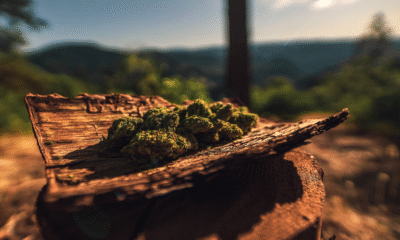

The High Times Guide to THCA: What It Is, How It Works, and Why Everyone’s Talking About It
-
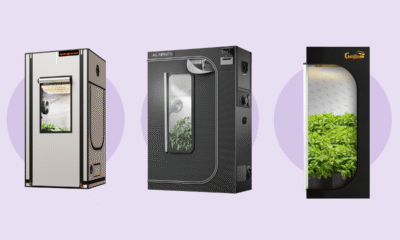

The best grow tents of 2025
-


Kansas Lawmakers Discuss Legality Of Intoxicating Hemp THC Products
-


Guess What Is Threading Its Way Back To Being Popular
-


39 Attorneys General Tell Federal Lawmakers to Ban Hemp THC Products
-
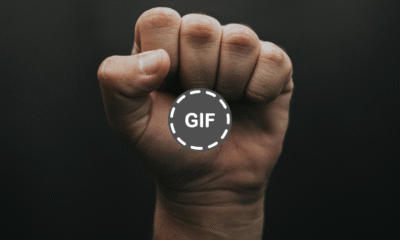

Now Is the Time to Embrace, Not Abandon, Cannabis Activism
featured
The High Times Guide to THCA: What It Is, How It Works, and Why Everyone’s Talking About It
Published
34 minutes agoon
October 27, 2025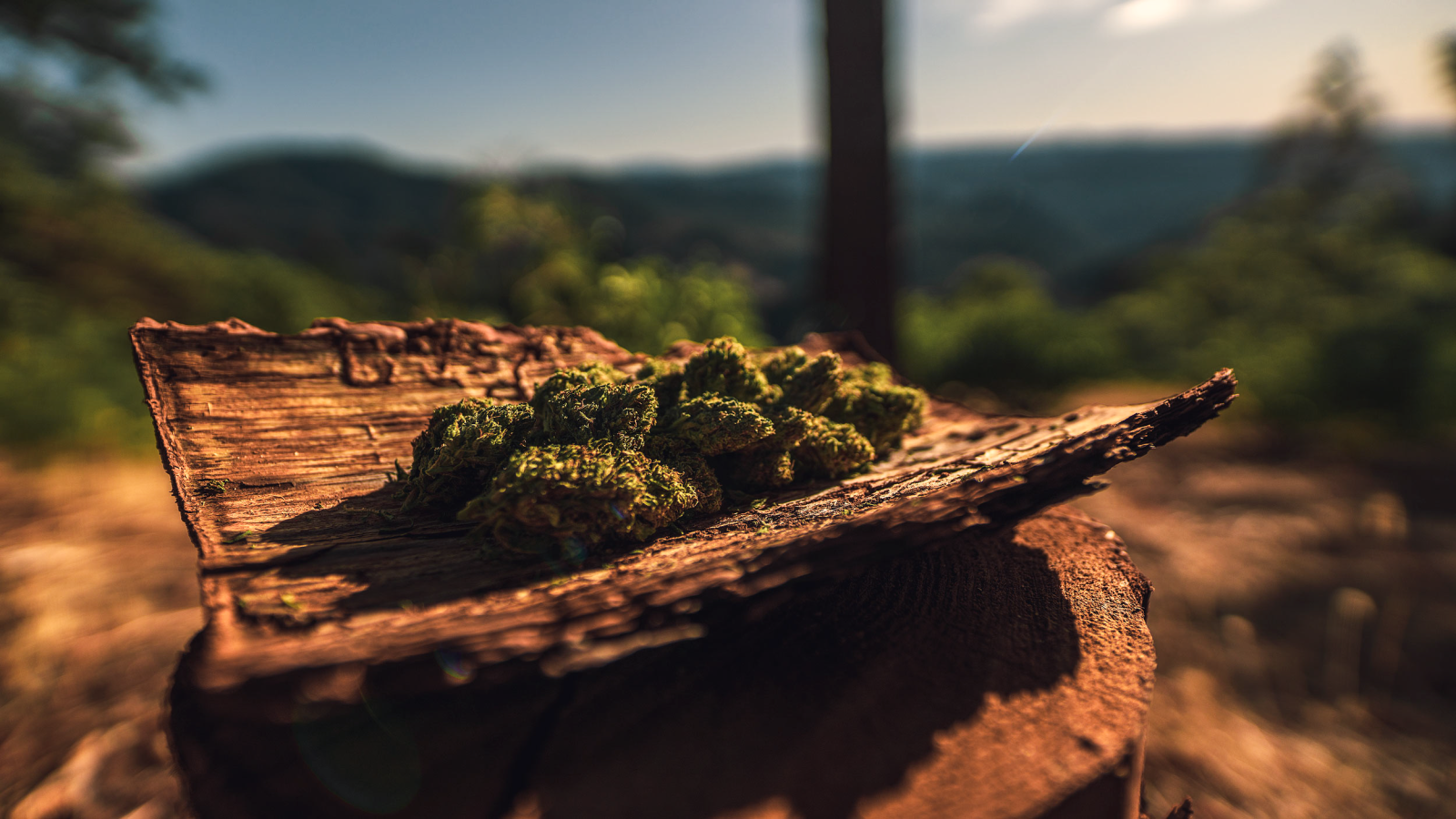
![]()
Depending on who you ask, THCA is either the future of cannabis or the latest hemp loophole. It’s the molecule turning “legal” hemp flower into a legitimate high—the chemistry trick that’s reshaping dispensary menus and blurring the line between hemp and weed.
Once a quiet lab term, THCA is now everywhere: in jars, pre-rolls, vapes, and hashtags. It’s science and street smarts rolled into one—proof that the plant always finds a way.
So what is THCA, really? How does it work? And why is everyone suddenly talking about it? Let’s dig in.
What Is THCA?
THCA stands for tetrahydrocannabinolic acid, the raw, non-psychoactive form of THC found naturally in cannabis plants. In living or freshly harvested flower, most of the THC actually exists as THCA. It’s a compound that won’t get you high until heat enters the equation.
THCA is the plant’s way of storing THC in a dormant state. When you smoke, vape, or bake, the heat triggers decarboxylation, the chemical reaction that removes a carbon group and transforms THCA into the THC molecule we all know and love.
In short:
- Raw cannabis = high in THCA, non-intoxicating
- Heated cannabis = THCA converts to THC, psychoactive
That’s the big secret behind “THCA flower.” It’s cannabis rich in THCA and low in delta-9 THC when tested, making it technically compliant hemp under federal law. But when you spark it, it becomes the real deal.
THCA vs. THC: What’s the Difference?
While they share nearly identical structures, THCA and THC behave very differently. The distinction comes down to that little extra carboxyl group (–COOH) on the THCA molecule.

In its raw state, THCA doesn’t activate the CB1 receptors that create the “high.” But apply heat, and that small structural change flips the switch—turning potential energy into psychoactive power.
The Science of Decarboxylation
Decarboxylation is what transforms THCA into THC. Think of it like roasting coffee beans—same ingredients, new chemistry.
When cannabis is heated—whether in a joint, a vape, or an oven—THCA loses its extra carbon dioxide molecule (CO₂). That small change alters its shape just enough to let it fit perfectly into the brain’s cannabinoid receptors.
General temperature guide:
- Light decarb: ~200°F (93°C) for 45–60 minutes
- Full conversion: ~220°F (104°C) for 30–45 minutes
- Overheating (>250°F) starts degrading THC into CBN, which delivers a heavier, sleepier effect
Most consumers don’t need to worry about this science because their lighter or vape pen does the job in real time. But understanding decarboxylation helps explain why THCA flower is legally hemp, yet functionally weed once it’s smoked.
Is THCA Legal?
The legality of THCA is a tangled web. What’s allowed often depends on when it’s measured, where, and under what definition.
Federal Baseline: The 2018 Farm Bill & “Hemp” Definition
The 2018 Farm Bill legalized hemp (and derivatives) if delta-9 THC (on a dry weight basis) is ≤ 0.3%. That law does not explicitly define limits on THCA. Because THCA is not delta-9 THC itself, some interpreted that high-THCA, low-THC hemp is permissible.
However, regulators frequently require a “total THC” test, meaning delta-9 THC + THCA×0.877 (a conversion factor). Under that regime, high-THCA products may push total THC over 0.3%, making them non-compliant.
In recent moves, federal proposals have surfaced that seek to redefine “hemp” by total combined THC (including THCA) rather than just delta-9 THC. If passed, many THCA-rich products would become illegal even if delta-9 THC is low.
Some legal analysis and DEA commentary suggest THCA might be considered under the analog doctrine (treated like THC) because it readily converts, making its regulatory status vulnerable.
State by State: Patchwork Rules
States vary wildly.
- Some states explicitly treat THCA as controlled or restrict its sale.
- Others allow THCA flower under hemp laws if delta-9 THC remains low at sale time.
- In certain jurisdictions, lawmakers have pushed bans or stricter rules on intoxicating hemp derivatives that include THCA products.
- Legal observers warn that the “loophole era” of THCA may be closing, with states ramping enforcement.
So: THCA may be legal in one state, restricted in another, and borderline in the next. Always check local law—and assume things could change rapidly.

Why THCA Flower Is Everywhere Right Now
THCA flower exploded in popularity because it delivers a familiar experience—the taste, smell, and potency of real cannabis—without technically breaking federal hemp limits.
For consumers in states without recreational dispensaries, it’s a game-changer. For brands, it’s a way to innovate legally. And for the cannabis industry as a whole, it’s a fascinating snapshot of how quickly science, law, and culture adapt to each other.
In other words: THCA flower sits right at the intersection of chemistry and creativity — the same space cannabis has always thrived in.
How to Use THCA
Smoking or Vaping: The most common method, and the one that converts THCA to THC instantly. Expect effects similar to standard cannabis, varying by strain and potency.
Edibles: You can decarboxylate THCA flower in the oven (at around 220°F for 30–40 minutes) before infusing it into butter or oil. Once decarbed, it behaves like regular THC in your edibles.
Raw Consumption: If you eat or juice raw THCA flower without heating, you won’t get high, but you may still experience some of the potential wellness benefits linked to cannabinoids. Some people add it to smoothies or salads for this reason.
Topicals: THCA-infused balms and salves may offer localized support for inflammation or muscle soreness without any psychoactive effects.
Does THCA Get You High?
Here’s the simplest answer:
- Raw THCA: No, it’s non-intoxicating.
Heated THCA: Yes, because it becomes THC.
When you smoke, vape, or cook it, THCA undergoes decarboxylation, converting into the same psychoactive molecule found in traditional cannabis. That’s why THCA flower can feel just like dispensary weed once you light up.
Potential Benefits of THCA
Research on THCA is still in early stages, but preclinical studies and anecdotal reports suggest several areas of promise:
- Anti-inflammatory: THCA may help regulate inflammatory pathways.
- Neuroprotective: Studies have explored its potential role in neurodegenerative diseases.
- Anti-nausea: Early data hints that THCA might reduce nausea or stimulate appetite.
- Antioxidant properties: THCA has been shown to neutralize free radicals.
Many of these effects overlap with THC and CBD, but more research is needed before any definitive medical claims can be made. What’s exciting is that THCA seems to have distinct physiological effects in its raw form, separate from THC’s psychoactivity.
Reading a COA (Certificate of Analysis): What to Look For
Every legitimate THCA product should come with a lab report. Understanding it protects you from buying mislabeled or non-compliant flower.
Here’s how to read it:
- THCA %: The primary active precursor.
- Δ9-THC %: Must be below 0.3% for hemp compliance.
- Total THC: Should be calculated as THC + (THCA × 0.877).
- Lab credentials: Look for ISO-certified labs using HPLC methods.
- Date and batch: Recent and traceable.
- Contaminant screens: Ensure it’s tested for pesticides, heavy metals, and microbes.
Pro tip: High-quality THCA flower usually tests between 20–30% THCA with minimal Δ9. Anything drastically outside that range warrants scrutiny.
How to Store THCA
THCA is sensitive to heat, light, and oxygen. Over time, it can convert into THC or degrade into CBN—both of which change the product’s potency and character.
Storage checklist:
- Keep in airtight, opaque glass jars.
- Store in a cool, dark place — ideally below 70°F (21°C).
- Avoid constant opening/closing or handling.
- For long-term storage, refrigeration (sealed) can help, but allow jars to warm to room temp before reopening.
Proper storage keeps your flower fresh, flavorful, and compliant.

Is THCA Safe?
THCA and THC are both generally well-tolerated, but quality control is everything. Stick with products that:
- Are lab-tested by accredited facilities
- Are free from contaminants
- Clearly list cannabinoid content and source
Because THCA is often sold under hemp law, regulation can be uneven. That’s why buying from trusted, transparent brands—like High Times’ own THCA line—is key.
The High Times Takeaway
The THCA boom represents more than a chemistry lesson—it’s a glimpse into cannabis’s constant evolution. As regulators refine definitions and markets mature, THCA may bridge the gap between hemp and traditional cannabis, giving consumers more choice while pushing science and policy forward.
Whether it remains a legal workaround or becomes fully integrated into the regulated cannabis space, one thing’s certain: THCA has changed the game—and it’s not fading anytime soon.
If you’re curious about the chemistry or just want to experience it yourself, THCA flower offers a way to explore the full spectrum of cannabis, legally, for now.
You can check out High Times’ new line of premium THCA flower, lab-tested, potent, and grown with integrity. Call it hemp, call it weed—we just call it progress.
Frequently Asked Questions
Is THCA legal everywhere in the U.S.?
Not exactly. Federally, it’s legal if derived from hemp with less than 0.3% delta-9 THC, but some states have introduced restrictions. Always check your local regulations.
Will THCA flower get me high?
Not until it’s heated. Once decarbed, it delivers the same psychoactive experience as THC.
Can THCA cause a positive drug test?
Yes. Once consumed with heat, THCA becomes THC—and your body will metabolize it the same way.
Is THCA the same as CBD?
No. CBD doesn’t convert to THC and remains non-intoxicating regardless of heat. THCA can become psychoactive.
What’s a good THCA percentage?
Top-shelf THCA flower usually ranges between 20–30% THCA. Anything above that is considered potent.
Does THCA have medical benefits?
Early research suggests possible anti-inflammatory and neuroprotective effects, but no official medical uses have been confirmed yet.
What’s the difference between THCA and marijuana?
They’re the same plant. The legal distinction depends on delta-9 THC levels — hemp (low THC) vs. marijuana (high THC).
<p>The post The High Times Guide to THCA: What It Is, How It Works, and Why Everyone’s Talking About It first appeared on High Times.</p>

Author: mscannabiz.com
MScannaBIZ for all you Mississippi Cannabis News and Information.
featured
Kansas Lawmakers Discuss Legality Of Intoxicating Hemp THC Products
Published
2 hours agoon
October 27, 2025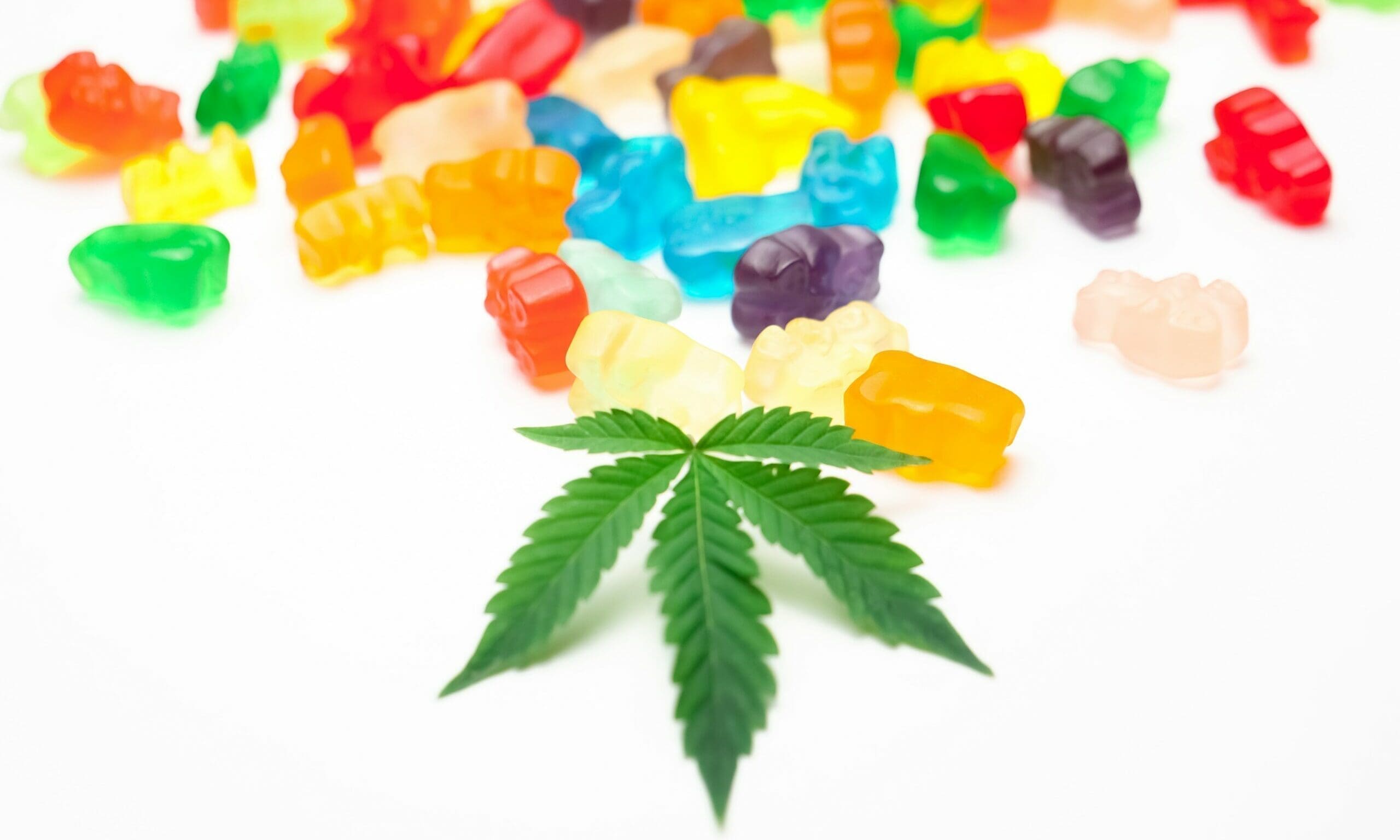
“If it’s intoxicating, it’s damaging.”
By Anna Kaminski, Kansas Reflector
While Kansas remains one of the last states in the nation without legalized medical or recreational marijuana, THC-infused drinks have evaded scrutiny from officials.
The question of the legality of the drinks came up Thursday at a meeting of a joint legislative committee on security.
Robert Stuart, executive officer for the Kansas Bureau of Investigation, explained to lawmakers that while marijuana is illegal in Kansas, THC-infused beverages are considered hemp products and allowed under the 2018 federal Farm Bill, which legalized cannabis plants containing no more than 0.3 percent of a plant’s weight in tetrahydrocannabinol, or THC. Products created using hemp are commonly advertised as Delta 9 items, and they can have a weaker effect than marijuana because of their lower THC content.
Rep. Pat Proctor, a Republican from Leavenworth, asked Stuart: “Should we be outlawing it?”
Yes, Stuart said, and he wagered the KBI’s position would be the same.
“If it’s intoxicating, it’s damaging,” he said.
THC drinks are restricted to adults over the age of 21, same as alcoholic beverages.

“You hear all sorts of social arguments and all sorts of different ways of thinking about it,” Stuart said, “but it would be much clearer for any of those distributors, any of those dealers, for any member of the public, to say, OK, this is what’s clearly illegal and clearly what’s not.”
Blurred lines make it difficult for retailers to comply with state laws, for consumers to know the products they purchase are safe and for law enforcement to conduct criminal investigations, Stuart said.
Kansas City, Missouri-based brewer Boulevard Brewing Company announced this month a THC-infused version of its signature Quirk seltzer, which will be called “Berry Jane.” It will be available in two dosages. One containing 5 mg THC and another containing 10 mg, differentiated by a darker can. They are expected to be sold in Kansas and Missouri next month.
The KBI celebrated a major crackdown on THC products earlier this month, raiding 10 storefronts in six cities across the state. KBI director Tony Mattivi said the products were harming Kansas children.
The Kansas House passed a bill legalizing medical marijuana in 2021, and a special committee crafted recommendations for the Legislature last year, but Republicans have blocked the legislation from progressing. It could come up during the next session, ahead of the 2026 gubernatorial election.

Author: mscannabiz.com
MScannaBIZ for all you Mississippi Cannabis News and Information.
featured
Guess What Is Threading Its Way Back To Being Popular
Published
3 hours agoon
October 27, 2025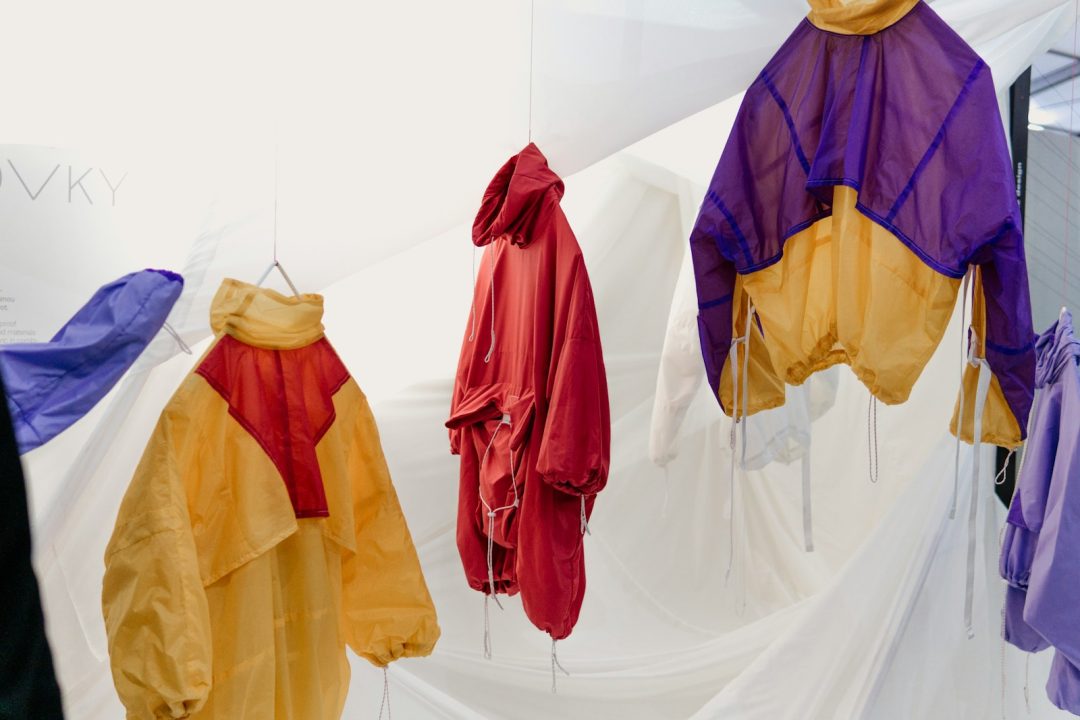
Guess what is threading its way back to being popular — Gen Z’s surprising new obsession is sew cool.
In a generational twist, young Americans are falling in love with their grandparents’ pastimes. From vinyl records spinning on turntables to typewriters clacking again on dorm desks, Generation Z and Millennials are breathing new life into analog culture. Now, they’re taking nostalgia one step further. You will never guess what is threading its way back to being popular now – sewing machines.
Across TikTok, Instagram, and even in big-box aisles at Costco, sewing is emerging as the latest hands-on hobby to stitch its way back into mainstream life.
RELATED: Immersive Events Redefine Millennial Nights
From gardening and journaling to reviving the look of thrifted 1980s windbreakers, Gen Z has turned “old-fashioned” into “on trend.” This generation values individuality, sustainability and creative expression — all things found in vintage-inspired pursuits. Just as vinyl and Polaroid cameras have made a comeback, sewing fits perfectly into the same ethos: it’s tactile, personal, and proudly non-digital.
The resurgence of hands-on creativity isn’t random. It’s a counterbalance to a world that’s often fast, online and disposable. In a sense, young people aren’t just buying less — they’re making more.

Why Sewing Is Trending Again
1. Crafting identity and self-expression
For many, sewing is a declaration of independence from fast fashion. Customizing or making your own clothing offers a sense of empowerment — a creative outlet says, “I made this.” On social media, this translates into content celebrating originality, individuality and style over mass production.
2. Sustainability and slow fashion
Gen Z and Millennials care deeply about sustainability. Sewing gives them a way to reuse, repurpose and repair, rather than toss and replace. Visible mending — repairing clothing in a way shows off the stitches as part of the design — has become a viral movement on TikTok.
3. Screen-break creativity
With most of life lived online, sewing provides an analog escape. It’s hands-on, calming and meditative — a way to literally disconnect from screens. A recent Fortune article noted many young adults are learning to sew “to get off their phones and save money.”
4. The social media effect
TikTok and Instagram have made sewing trendy, not tedious. Hashtags like #sewingtutorial, #upcycledfashion and #thriftflip are filled with videos showing transformations from thrift-store finds to high-fashion looks. Tutorials and time-lapse reels make the craft feel approachable and rewarding — especially when the finished product is instantly shareable.
RELATED: The Connection Between Country Music And Cannabis
When a major retailer starts stocking modern sewing machines, you know something’s changing. Costco now offers sleek, computerized models like the Singer Heavy Duty 8832 and Brother XR3340, complete with LCD screens, hundreds of stitch patterns, and built-in quilting options. These aren’t your grandmother’s machines — they’re tech-forward tools align with the DIY spirit of younger shoppers.
The fact Costco, known for bulk groceries and electronics, now markets sewing machines signals just how mainstream this revival has become. The craft aisle isn’t just for hobbyists anymore — it’s for creators, side-hustlers and trendsetters.
On Instagram and TikTok, sewing creators are building large, loyal followings. Whether it’s a 20-second video of a thrifted denim jacket getting a new lining or a full tutorial on turning curtains into dresses, sewing content fits perfectly into Gen Z’s creative economy. It’s visually satisfying, shareable, and aspirational in a grounded way — making something from nothing.
Younger users are even reframing the stereotype of sewing as something only grandmothers do. Many proudly show off learning from older relatives while adding a modern twist, connecting generations through thread and fabric.

Author: mscannabiz.com
MScannaBIZ for all you Mississippi Cannabis News and Information.

The High Times Guide to THCA: What It Is, How It Works, and Why Everyone’s Talking About It

The best grow tents of 2025

Kansas Lawmakers Discuss Legality Of Intoxicating Hemp THC Products

Guess What Is Threading Its Way Back To Being Popular

39 Attorneys General Tell Federal Lawmakers to Ban Hemp THC Products

Now Is the Time to Embrace, Not Abandon, Cannabis Activism

No One Is Giving Your Kids Marijuana Edibles in Their Halloween Candy

Florida Case On Medical Marijuana Patients’ Gun Rights Is On Hold As Supreme Court Weighs Underlying Issue

CULTA Appoints Cannabis Industry Veteran Joseph Andreae as CEO

The Creature from the Black Leather Lagoon

Cannabis industry case challenging prohibition hits Supreme Court (Newsletter: October 27, 2025)

I Worked a Day as a Budtender in Brooklyn: Here’s What I Learned

Trump’s ‘Stupid’ Drug War Killings Put Military In Untenable Position, Former GOP Attorney General Of Idaho Says (Op-Ed)

Oregon Officials Seek To Dismiss Psilocybin Access Lawsuit From Homebound Patients

South Dakota Medical Marijuana Advocates Alarmed After Lawmakers Give Prohibitionists A Platform

What Levi Strauss Can Teach Us About Craft and Cannabis

Michigan Lawmakers Consider Bills To Change Legal Marijuana Possession Limits And Alter Industry Disciplinary Rules

Bad Stoner Horror: The 10 Worst-Rated 420 Scary Movies

Vee the Traveling Cannabis Writer Unveils First Book in Cannabis Legacy Series – Ganjapreneur

[Video] G Herbo: Snoop Rolled My Blunt and Let Me Hit It, Smoking A Zip a Day, Chicago Munchies (Weird) and What’s Next

Marijuana Companies Ask U.S. Supreme Court To Take Up Case Challenging Constitutionality Of Federal Prohibition

The Odds Of The Feds Making A 2025 Cannabis Change

The Epic High Times Cannabis Cup Journey, From Amsterdam to the Empire State

GOP Senator Pushes To Study—Rather Than Ban—Hemp Products, As State Attorneys General Call For THC Prohibition

Alert: Department of Cannabis Control updates data dashboards with full data for 2023

Connecticut Appoints The US’s First Cannabis Ombudsperson – Yes there is a pun in there and I’m Sure Erin Kirk Is Going To Hear It More Than Once!

5 best CBD creams of 2024 by Leafly

Recreational cannabis on ballot for third time in South Dakota

EU initiative begins bid to open access to psychedelic therapies
New Study Analyzes the Effects of THCV, CBD on Weight Loss

Free delta-9 gummies from Bay Smokes

5 best autoflower seed banks of 2024 by Leafly

Discover New York’s dankest cannabis brands [September 2024]

May 2024 Leafly HighLight: Pink Runtz strain

Press Release: CANNRA Calls for Farm Bill to Clarify Existing State Authority to Regulate Hemp Products

5 best THC drinks of 2024 by Leafly

Local medical cannabis dispensary reacts to MSDH pulling Rapid Analytics License – WLBT

6 best CBD gummies of 2024 by Leafly

Curaleaf Start Process Of Getting Their Claws Into The UK’s National Health System – With Former MP (Resigned Today 30/5/24) As The Front Man

Horn Lake denies cannabis dispensary request to allow sale of drug paraphernalia and Sunday sales | News

5 best delta-9 THC gummies of 2024 by Leafly

The Daily Hit: October 2, 2024

Mississippi city official pleads guilty to selling fake CBD products

Nevada CCB to Accept Applications for Cannabis Establishments in White Pine County – “Only one cultivation and one production license will be awarded in White Pine County”

5 best THCA flower of 2024 by Leafly

Weekly Update: Monday, May 13, 2024 including, New Guide for Renewals & May Board meeting application deadline

6 best hemp pre-rolls of 2024 by Leafly

PRESS RELEASE : Justice Department Submits Proposed Regulation to Reschedule Marijuana
Trending
-

 California Cannabis Updates1 year ago
California Cannabis Updates1 year agoAlert: Department of Cannabis Control updates data dashboards with full data for 2023
-

 Breaking News1 year ago
Breaking News1 year agoConnecticut Appoints The US’s First Cannabis Ombudsperson – Yes there is a pun in there and I’m Sure Erin Kirk Is Going To Hear It More Than Once!
-

 best list1 year ago
best list1 year ago5 best CBD creams of 2024 by Leafly
-

 Business1 year ago
Business1 year agoRecreational cannabis on ballot for third time in South Dakota
-

 Business1 year ago
Business1 year agoEU initiative begins bid to open access to psychedelic therapies
-

 cbd1 year ago
cbd1 year agoNew Study Analyzes the Effects of THCV, CBD on Weight Loss
-

 Bay Smokes1 year ago
Bay Smokes1 year agoFree delta-9 gummies from Bay Smokes
-

 autoflower seeds1 year ago
autoflower seeds1 year ago5 best autoflower seed banks of 2024 by Leafly

